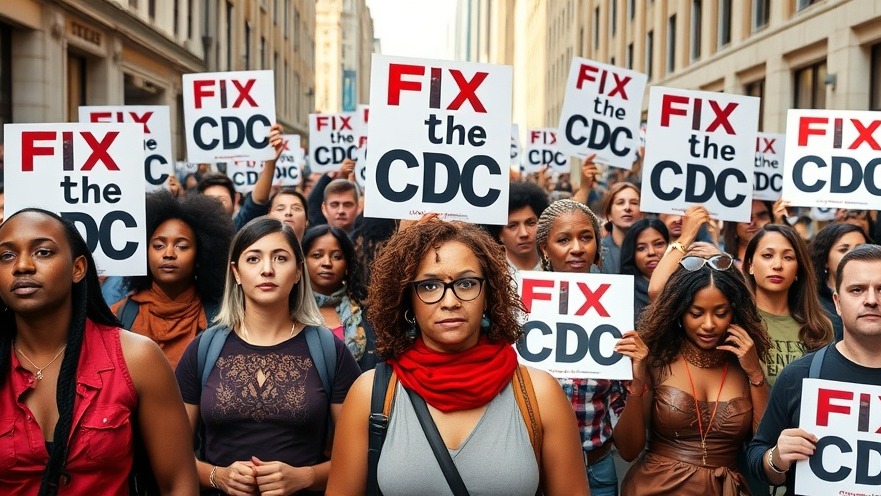
Why CDC Employees are Resigning en Masse
In a striking demonstration of dissent within the Centers for Disease Control and Prevention (CDC), a wave of employees have chosen to resign following the ousting of the agency's director. This situation reflects not only individual grievances but also broader concerns regarding leadership and direction in public health. CDC staff members, who often see their roles as vital to the nation’s response to health crises, are expressing frustration over perceived inconsistencies in leadership and their impact on public trust.
What Led to the CDC Discontent?
The CDC has been a beacon of scientific authority, particularly amid the coronavirus pandemic. However, political pressures and evolving public health directives have created an environment of uncertainty. These resignations can be seen as a symbolic protest against a leadership that employees feel does not represent the agency's commitment to science and public health.
The Importance of Trust in Public Health
The recent CDC turmoil raises crucial questions about trust, not only within government agencies but also in the broader medical community. As public trust wanes amid conflicting guidance, it becomes increasingly evident that cohesive leadership and clear communication are vital. The CDC's mission is to protect the health of Americans, and when that mission appears compromised, the ramifications extend far beyond the agency itself.
Who Delivers the Hard Truths to Power?
Meanwhile, as the drama unfolds, essential discussions are burgeoning around who has the courage to deliver hard truths to those in power. Effective governance requires honesty and accountability, particularly in turbulent times. Historical moments demonstrate that the voices of those close to the action are often the most important for leaders. Encouraging open lines of communication can facilitate better decision-making processes and restore confidence in public institutions.
Lessons from Current Events
As we witness the resignation of CDC employees and consider who speaks truth to power, parallels can be drawn to various instances in history when public dissent shifted the course of events. Whether in medicine, government, or corporate America, the need for transparent communication remains a pressing issue. Awareness of these dynamics can equip us to better navigate anxieties about public health and governance today.
Moving Forward: Rebuilding the Trust
To mend the fractures within the CDC, strategies can be employed to restore employee morale and public confidence. Involving CDC employees more heavily in decision-making processes can lead to renewed commitment and ownership over public health directives. Training initiatives focusing on leadership integrity, communication effectiveness, and community engagement may also serve to underline the importance of collaboration in rebuilding the agency’s credibility.
The Broader Implications for National News
The ongoing resignations at the CDC are an example of a much larger narrative unfolding in U.S. news today. As Americans absorb new headlines about public health and governance, understanding these developments is crucial. It serves as a reminder of the importance of steadfast leadership, evolutionary legislative accountability, and a shared responsibility to uphold public trust in institutions.
As citizens, our awareness of these issues is paramount. Whether through engaging with current public health guidance, holding leaders accountable, or advocating for stronger communication channels, we have a role in shaping the futures of our institutions. By monitoring these trends in news and assertively advocating for transparency and integrity, we can contribute to a healthier socio-political environment.
 Add Element
Add Element  Add Row
Add Row 



Write A Comment